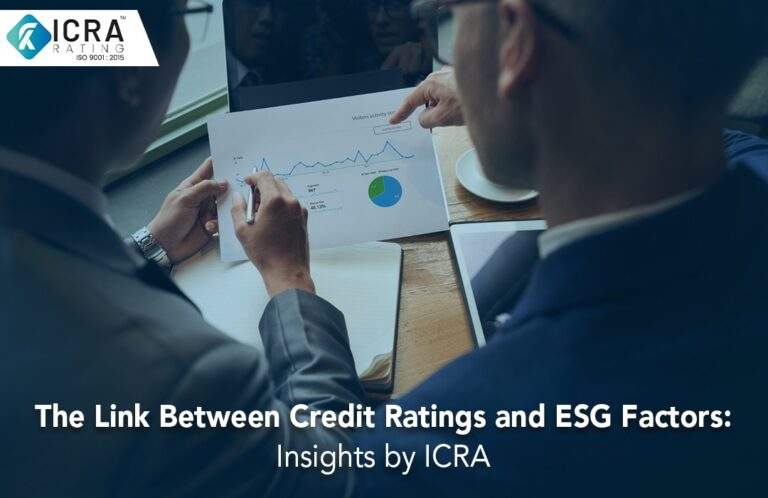
The Link Between Credit Ratings and ESG Factors: Insights by ICRA
The intersection between credit ratings and ESG factors has emerged as a focal point for various stakeholders in the fast evolving landscape of finance.
With the importance gained by ESG considerations their influence on credit ratings is drastically shaping the way businesses are nowadays evaluated in terms of their financial stability and long-term growth.
In the traditional lens credit ratings have focused on financial factors like financial metrics, operational performance and ongoing market trends. With the inclusion of ESG factors a new dimension has been added to the analysis which evaluates a company’s commitment to sustainability. Company’s role in fostering social equity, and the governance practices are no longer seen as peripheral but rather as core determinants of company’s creditworthiness.
The Expertise Behind ICRA’s ESG Framework
ICRA’s ability to seamlessly integrate ESG factors into credit ratings lies in its diverse and expert team who have decades of collective experience. Client centric approach and deep understanding of financial trends lets the analysts at ICRA ensure that the ratings are not only accurate but also are aligned with regulatory requirements. The seasoned team of analysts at ICRA understands and recognizes ESG risks and opportunities which are integral in understanding an organization’s long-term financial health.
Why ESG Integration Matters
Incorporating ESG factors into their operations for businesses isn’t just about improving credit rating anymore but also about how they stay relevant in a market which highly values sustainability and accountability. Even for investors giving a priority to ESG aligned portfolios make them view them as less risky and more future-proof. ICRA with their clear actionable insights empowers businesses to align their strategies with ESG standards that are uniform globally further letting them enhance their creditworthiness and societal impact.
How ICRA Incorporates ESG in Credit Ratings
Inorder to provide a rating that reflects a comprehensive understanding of ESG dynamics ICRA uses an approach that is heavily rooted in extensive research, data analysis and industry-specific expertise.
Let us take a closer look at the analysis and understanding of each factors –
- Environmental Analysis – Through detailed assessments of factors like climate change mitigation, energy efficiency, and waste management practices, ICRA evaluates an organization’s environmental impact. Companies are often viewed as favourable when they demonstrate innovation in reducing carbon emissions or adopt renewable energy sources.
- Social Metrics – Social performance is a vital factor taken into consideration when evaluating by ICRA which involves analyzing labor practices, employee satisfaction and community impact. When companies have strong social responsibility policies they then exhibit operational stability and reduced reputational risks.
- Governance Insights – ICRA team delves into a company’s leadership structure along with shareholder rights and transparency in disclosures and adherence to ethical standards. With effective governance frameworks it often leads to better strategic decision-making with reduced risks of frauds and long- term financial stability.
ICRA team tailors its ESG evaluations with their quantitative and qualitative insights inorder to align with the nuances of specific industries which ensures that the ratings remain relevant and accurate.
